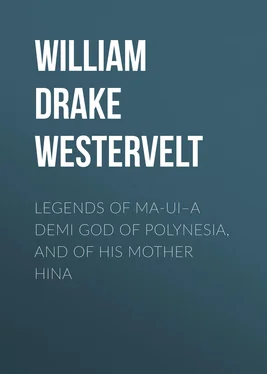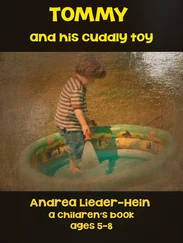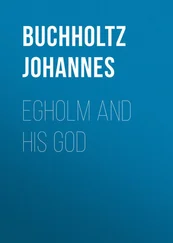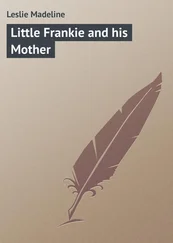The New Zealand Maoris were accustomed to say that at first the sky rested close upon the earth and therefore there was utter darkness for ages. Then the six sons of heaven and earth, born during this period of darkness, felt the need of light and discussed the necessity of separating their parents—the sky from the earth—and decided to attempt the work.
Rongo (Hawaiian god Lono) the "father of food plants," attempted to lift the sky, but could not tear it from the earth. Then Tangaroa (Kanaloa), the "father of fish and reptiles," failed. Haumia Tiki-tiki (Maui Kiikii), the "father of wild food plants," could not raise the clouds. Then Tu (Hawaiian Ku), the "father of fierce men," struggled in vain. But Tane (Hawaiian Kane), the "father of giant forests," pushed and lifted until he thrust the sky far up above him. Then they discovered their descendants—the multitude of human beings who had been living on the earth concealed and crushed by the clouds. Afterwards the last son, Tawhiri (father of storms), was angry and waged war against his brothers. He hid in the sheltered hollows of the great skies. There he begot his vast brood of winds and storms with which he finally drove all his brothers and their descendants into hiding places on land and sea. The New Zealanders mention the names of the canoes in which their ancestors fled from the old home Hawaiki.
Tu (father of fierce men) and his descendants, however, conquered wind and storm and have ever since held supremacy.
The New Zealand legends also say that heaven and earth have never lost their love for each other. "The warm sighs of earth ever ascend from the wooded mountains and valleys, and men call them mists. The sky also lets fall frequent tears which men term dew drops."
The Manihiki islanders say that Maui desired to separate the sky from the earth. His father, Ru, was the supporter of the heavens. Maui persuaded him to assist in lifting the burden. Maui went to the north and crept into a place, where, lying prostrate under the sky, he could brace himself against it and push with great power. In the same way Ru went to the south and braced himself against the southern skies. Then they made the signal, and both pressed "with their backs against the solid blue mass." It gave way before the great strength of the father and son. Then they lifted again, bracing themselves with hands and knees against the earth. They crowded it and bent it upward. They were able to stand with the sky resting on their shoulders. They heaved against the bending mass, and it receded rapidly. They quickly put the palms of their hands under it; then the tips of their fingers, and it retreated farther and farther. At last, "drawing themselves out to gigantic proportions, they pushed the entire heavens up to the very lofty position which they have ever since occupied."
But Maui and Ru had not worked perfectly together; therefore the sky was twisted and its surface was very irregular. They determined to smooth the sky before they finished their task, so they took large stone adzes and chipped off the rough protuberances and ridges, until by and by the great arch was cut out and smoothed off. They then took finer tools and chipped and polished until the sky became the beautifully finished blue dome which now bends around the earth.
The Hervey Island myth, as related by W. W. Gill, states that Ru, the father of Maui, came from Avaiki (Hawa-iki), the underworld or abode of the spirits of the dead. He found men crowded down by the sky, which was a mass of solid blue stone. He was very sorry when he saw the condition of the inhabitants of the earth, and planned to raise the sky a little. So he planted stakes of different kinds of trees. These were strong enough to hold the sky so far above the earth "that men could stand erect and walk about without inconvenience." This was celebrated in one of the Hervey Island songs:
"Force up the heavens,
O, Ru!
And let the space be clear."
For this helpful deed Ru received the name "The supporter of the heavens." He was rather proud of his achievement and was gratified because of the praise received. So he came sometimes and looked at the stakes and the beautiful blue sky resting on them. Maui, the son, came along and ridiculed his father for thinking so much of his work. Maui is not represented, in the legends, as possessing a great deal of love and reverence for his relatives provided his affection interfered with his mischief; so it was not at all strange that he laughed at his father. Ru became angry and said to Maui: "Who told youngsters to talk? Take care of yourself, or I will hurl you out of existence."
Maui dared him to try it. Ru quickly seized him and "threw him to a great height." But Maui changed himself to a bird and sank back to earth unharmed.
Then he changed himself back into the form of a man, and, making himself very large, ran and thrust his head between the old man's legs. He pried and lifted until Ru and the sky around him began to give. Another lift and he hurled them both to such a height that the sky could not come back.
Конец ознакомительного фрагмента.
Текст предоставлен ООО «ЛитРес».
Прочитайте эту книгу целиком, купив полную легальную версию на ЛитРес.
Безопасно оплатить книгу можно банковской картой Visa, MasterCard, Maestro, со счета мобильного телефона, с платежного терминала, в салоне МТС или Связной, через PayPal, WebMoney, Яндекс.Деньги, QIWI Кошелек, бонусными картами или другим удобным Вам способом.












